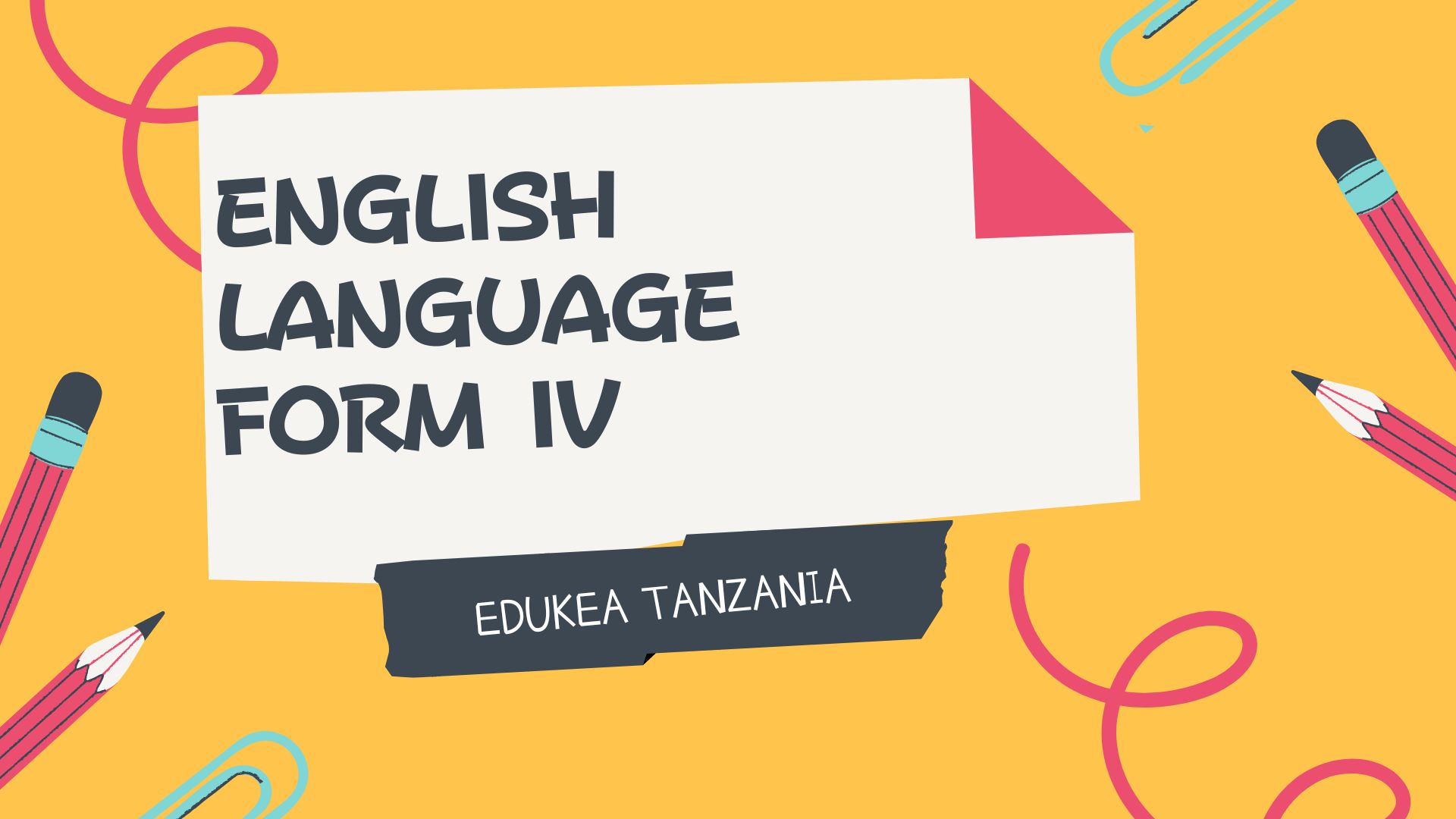In Form Four, English Language studies continue to build upon the foundational skills developed in earlier grades. Here's an overview of what students might cover in English Language at this level:
-
Advanced Reading Comprehension: Students engage with more complex texts, including literary works, non-fiction articles, and informational texts. They practice extracting main ideas, identifying supporting details, and analyzing the author's purpose and tone.
-
Writing Skills Development: Students further develop their writing skills by composing various types of essays, including argumentative, descriptive, and narrative essays. They focus on organizing their ideas logically, using appropriate vocabulary and grammar, and supporting their arguments with evidence.
-
Grammar and Syntax: Students continue to refine their understanding of English grammar and syntax, including sentence structure, verb tense usage, subject-verb agreement, and punctuation rules. They apply these rules correctly in their writing and speaking.
-
Vocabulary Expansion: Students expand their vocabulary by learning new words and phrases encountered in texts and contexts relevant to their academic and everyday lives. They practice using context clues and word analysis strategies to determine the meanings of unfamiliar words.
-
Speaking and Listening Skills: Students participate in oral presentations, debates, and discussions to enhance their speaking and listening skills. They learn to express themselves clearly and confidently, engage in respectful dialogue, and actively listen to others' perspectives.
-
Critical Thinking and Analysis: Students develop critical thinking skills by analyzing and evaluating arguments, claims, and evidence presented in various texts. They learn to identify biases, logical fallacies, and persuasive techniques used in written and spoken communication.
-
Media Literacy: Students learn to critically analyze and interpret information presented in various media formats, including newspapers, magazines, websites, and multimedia presentations. They develop skills to assess the credibility, reliability, and bias of sources.
-
Exam Preparation: Students prepare for standardized English Language exams by practicing past exam papers, honing exam-taking strategies, and familiarizing themselves with the format and expectations of the exams.
Overall, English Language studies in Form Four aim to equip students with advanced communication skills, critical thinking abilities, and linguistic competence necessary for academic success and effective communication in various personal, social, and professional contexts.
